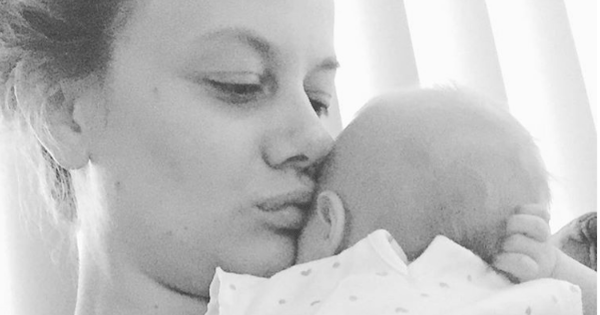

Many of us will come down with the flu at least once in our lives. It’s an incredibly common illness, but for pregnant women it can be dangerous.
One person who knows this is Karen Merrill.
The mum of three suffered through the flu in her first and third pregnancies, but it was the most recent experience that shook her the most.
“With my daughter, my youngest child, that experience was probably the worst,” Merrill says.
“It started out with a sore throat, a bit scratchy, but then I started getting a fever and aches and pains and then the coughing started.”





